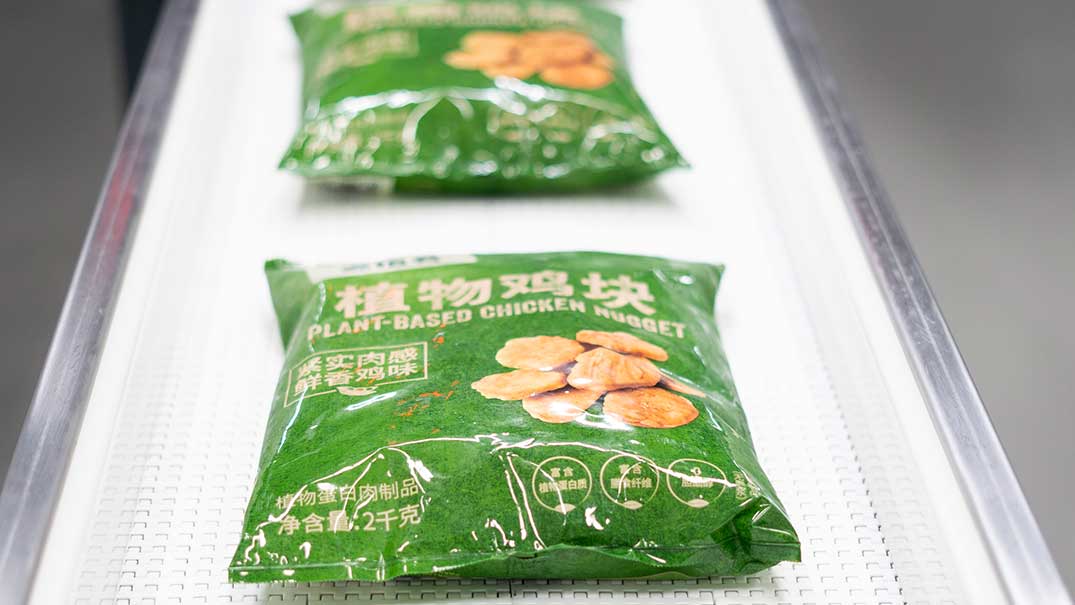Nestlé made its plant-based faux meat debut in China on December 9 with the Harvest Gourmet brand launch at an event in Beijing. The range includes burgers, sausages, nuggets and mince, as well as plant-based alternatives to popular items such as kung pao chicken, braised meatballs, pork belly and spicy wok ingredients.
Harvest Gourmet products will be available in retail and for out-of-home eating places, meeting growing demand from Chinese consumers for tasty, nutritious and sustainable plant-based options.
Nestlé also inaugurated its first plant-based production site in Asia. Located in Tianjin, China, the facility is already fully operational and will provide a wide range of plant-based food under the Harvest Gourmet brand.
Rashid Qureshi, the company’s chief executive officer in the Greater China Region, stated: “Nestlé wants to make plant-based food part of everyone’s everyday life, which is why we’re excited to offer our delicious and nutritious products in China. We see China leading the trend towards a new generation of plant-based food in Asia, as people look for options that are good for them and good for the planet.”
Vevey, Switzerland-headquartered Nestlé has an established plant-based product presence in Europe with Garden Gourmet and in the United States with Sweet Earth brands. Harvest Gourmet products are already available in Australia and will now build a strong profile in Asia. The will use its industry-leading innovation capacity to continue to create new dining experiences tailored to Chinese tastebuds.
In the past 18 months, Nestlé has introduced new plant-based burgers, sausages and mince as well as plant-based alternatives to chicken, tuna and an array of plant-based meals including pizzas and lasagna. It has also debuted a fully plant-based “bacon cheeseburger” for foodservice customers in the United States.
Globally, Nestlé has around 300 people dedicated to the research and development of plant-based products. The company’s deep expertise in protein science as well as its global research, prototyping and accelerator facilities mean it can accelerate new product development despite the current challenging environment.






